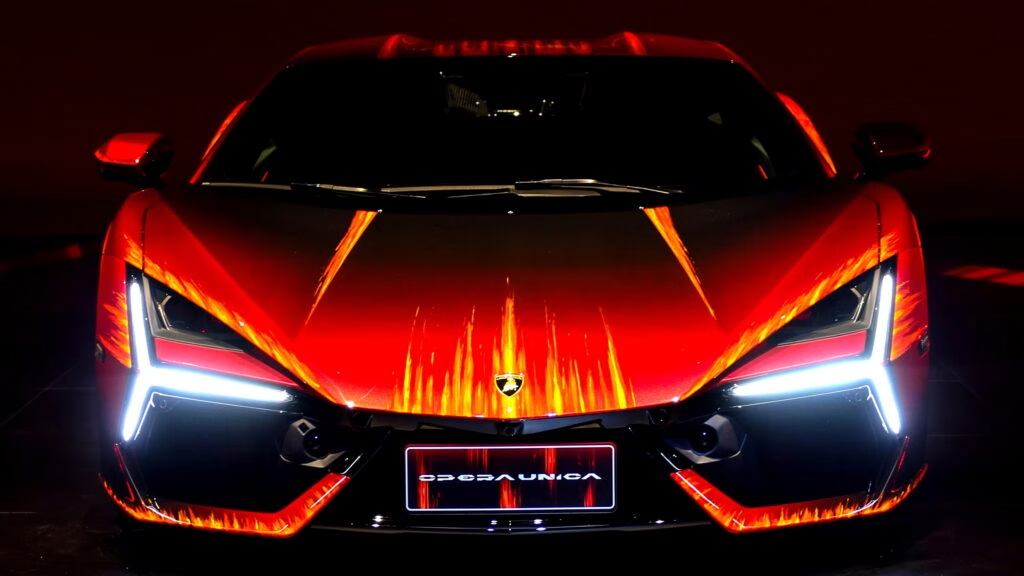Why Is Lamborghini Suing an Illinois Dealer Over Supercar Sales?
Lamborghini’s latest legal battle isn’t just about flashy cars and big money—it’s about who gets to own the world’s most exclusive supercars, and what happens when the rules get bent. The Italian automaker has taken Gold Coast Exotic Imports, a well-known Illinois dealership, to court, accusing them of selling 32 Lamborghinis in 2023 to unauthorized brokers and resellers. Lamborghini claims this violates their agreement, which is supposed to keep these rare cars in the hands of genuine enthusiasts, not middlemen looking for a quick flip.
What’s at Stake for Lamborghini and Its Brand?
For luxury automakers like Lamborghini, exclusivity is everything. The brand’s reputation depends on its cars being rare, coveted, and owned by people who truly value them. When vehicles end up with brokers or, worse, individuals with questionable backgrounds, it risks tarnishing the image Lamborghini has spent decades building.
There’s also a financial side to this. Lamborghini says it paid Gold Coast over $4 million in incentive bonuses since 2019, expecting the dealership to play by the rules. When those rules are broken, it’s not just about lost sales—it’s about undermining the entire business model that keeps these cars so desirable.
How Did the Alleged Flipping Scheme Work?
According to court documents, Gold Coast Exotic Imports allegedly told Lamborghini they were selling cars to legitimate buyers—a Minnesota chiropractor, a former Chicago athlete, and others. In reality, many of these vehicles reportedly went to middlemen who had no intention of keeping them. In one particularly eyebrow-raising case, a Lamborghini was sold to someone previously convicted of using luxury cars to launder money for drug dealers and pimps.
Lamborghini’s investigation uncovered 32 such transactions in a single year. The automaker also alleges that the dealership demanded off-the-books kickbacks from customers—sometimes totaling hundreds of thousands of dollars—for access to limited-edition models. If true, that’s a serious breach of trust, not to mention a potential legal minefield.
What Does Gold Coast Say in Its Defense?
Gold Coast Exotic Imports has denied all allegations and fought to have the case dismissed, so far without success. The dealership claims Lamborghini actually owes them money for showroom improvements and marketing expenses. They also argue that the automaker is trying to push out their president, Joseph Perillo Sr., who’s been a fixture in Chicago’s car scene for decades.
Despite the heated back-and-forth, both sides are now reportedly in settlement talks. According to U.S. District Judge Rebecca Pallmeyer, there’s hope for a resolution outside of court, which could spare both parties a lengthy and expensive legal battle.
Why Do Automakers Care So Much About Flipping?
This isn’t just a Lamborghini problem. Ferrari, Porsche, and other high-end brands have all struggled with the issue of car flipping—where buyers purchase limited-edition vehicles only to resell them at a huge markup. It’s a lucrative business for flippers, but it undermines the loyalty of true fans and collectors.
To combat this, automakers often include strict clauses in dealer agreements, limiting sales to retail customers and sometimes even blacklisting known flippers. According to a 2023 report from J.D. Power, more than 20 percent of limited-run supercars are resold within the first year, often at prices 50 percent or more above MSRP. That’s a headache for brands trying to keep their cars exclusive and their most loyal customers happy.
What’s the Real Impact on Buyers and the Market?
When dealerships skirt the rules, it doesn’t just hurt the brand—it affects everyone in the market. Genuine enthusiasts may find themselves priced out, while speculators snap up allocations. Worse, when cars end up in the hands of people with criminal backgrounds, it raises serious questions about oversight and due diligence.
For buyers, this means more scrutiny and, sometimes, frustration. Some automakers now require buyers to sign contracts promising not to resell their cars for a set period. Others have started tracking VINs and monitoring the secondary market more closely. It’s a high-stakes game of cat and mouse, and the rules keep evolving.
Could This Case Change How Supercars Are Sold in the US?
If Lamborghini’s lawsuit leads to stricter enforcement or new industry standards, it could reshape how exotic cars are allocated and sold across the country. Dealers may face more audits, tighter contracts, and steeper penalties for violations. Buyers, meanwhile, might see even more hoops to jump through to get their hands on the latest limited-edition model.
But there’s a flip side. Too much restriction could drive some buyers away or push more sales into the gray market. Striking the right balance—protecting exclusivity without alienating loyal customers—is the real challenge.
What Should Enthusiasts and Collectors Watch For Next?
With settlement talks underway, this case could wrap up quietly, or it could set a new precedent for how automakers police their dealer networks. Either way, it’s a wake-up call for anyone in the market for a high-end car: do your homework, work with reputable dealers, and understand that the rules are there for a reason.
The big takeaway? Protecting the integrity of luxury brands like Lamborghini isn’t about perfection—it’s about smarter adjustments. Start with one change this week, and you’ll likely spot the difference by month’s end.

